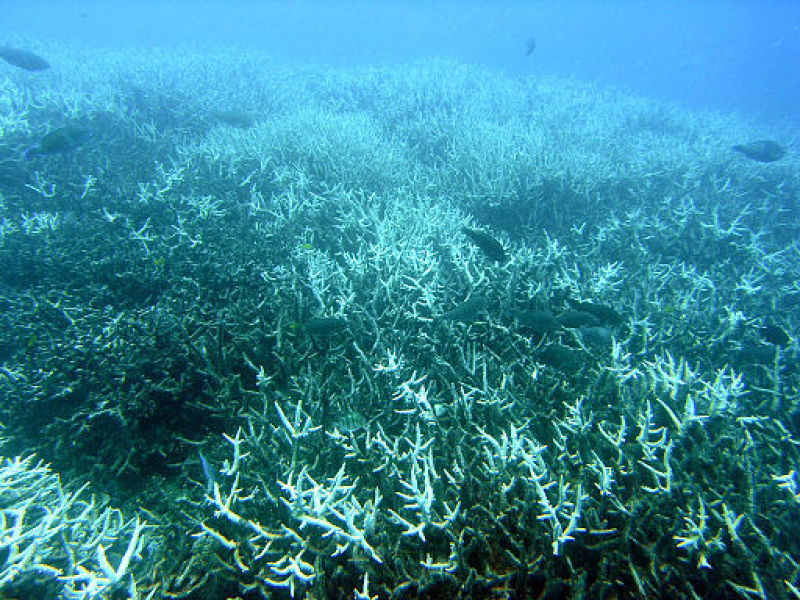
Scientists warned that Hawaii might be facing the worst coral bleaching ever this year based on data regarding the rising ocean temperatures in the region.
This environmental issue can increase the risk of corals developing various diseases which could lead to their deaths, according to the Associated Press via the New York Times.
Coral bleaching occurs when warm ocean temperatures force corals to eject algae, which is their primary source of food. As a result, they weaken and lose their vibrant colors.
This event also has an effect on other marine animals such as fish that live and thrive in coral reefs. If the corals die, the other marine animals will also lose their homes.
Aside from marine organisms, the environmental event can also affect the tourism of U.S. and Hawaii since 85 percent of the former's coral are located in that region.
The last time Hawaii faced a similar event was in 2014. However, after studying the region, Chris Benchley of the National Weather Service in Honolulu said that ocean temperatures in Hawaii this year are 3 to 6 degrees Fahrenheit warmer than normal conditions. Since the marine organism have not yet fully recovered from last year's event, another coral bleaching this year can seriously endanger their conditions.
"You can't stress an individual, an organism, once again and then hit it again very, very quickly and hope they will recover as quickly," Ruth Gates, the head of the Hawaii Institute of Marine Biology told the Associated Press.
"You go from a vibrant, three-dimensional structure teeming with life, teeming with color, to a flat pavement that's covered with brown or green algae," she added. "That is a really doom-and-gloom outcome but that is the reality that we face with extremely severe bleaching events."
According to Gates, over the past few decades, the world has already lost about 40 percent of its coral reefs due to bleaching. In Hawaii, bleaching events are already beginning to happen in Kaneohe Bay, Oahu, Maui, Kawaihae and South Kona.
Although preventing coral bleaching may seem hopeless due to its connection with global warming, experts said that residents and still do their part to reduce its impact. Since sewage systems are connected to the ocean, people are advised to avoid using soap and fertilizers when washing their cars or tending to their gardens to prevent chemicals from reaching the sea, Science Times reported.
Boaters and fishermen should also be careful when passing over coral reefs to avoid accidentally damaging them.



















